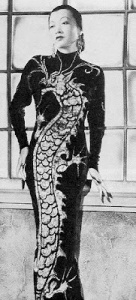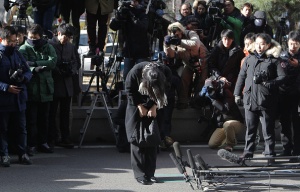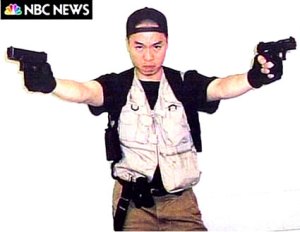
By Ralph Karst
The Arab world is on fire. The death-throes of an old order are convulsing Tunisia, Egypt, Bahrain, Libya, and Syria as tyrants battle rebels, Sunnis battle Shiites, Iran proxies battle Saudi proxies—the entire region whipping into a hellish whirlwind of civil war and fanaticism, with maybe—just maybe—a few scant seeds of democracy struggling to germinate somewhere in the desert sands. People are flooding the streets, filling the squares, storming the TV stations and the palaces, taking up arms, making history. And the question on everyone’s minds is, when will The Scorpions head into the studio to record an Arabic version of “Winds of Change?”
However, as they say, all politics are local. So what’s the local angle here in South Korea, besides rising gas prices and a 2-for-1 “revolution special” at hookah bars in Itaewon?
Well, what if I told you that one of my students—a South Korean high school student— started it all? That a slacking, screw-up, C+-at-best student is the one single person responsible for crying havoc and letting slip the dogs of war? How could this be? How could a dim, feckless 16-year-old Korean kid uncork the rage of a region?
Go with me on this one.
True story: in May, 2010, Mr. Mustapha Khammari, the Tunisian ambassador to South Korea, visited the high-class private foreign language high school where I used to teach. Naturally, this was a fairly big deal for us, so we prepared a big to-do: a reception where our students prepared multi-media presentations on various aspects of Tunisian culture, history, economy, and government. The goal: to educate the rest of the school community, and to show the Ambassador that our students knew how to cut-and-paste from Wikipedia.
Ambassador Khammari was a late-middle-aged man, hair gracefully retreating and graying over his round, olive-skinned face. He was tall, a little stout, and had the friendly, relaxed demeanor befitting a person who, like most ambassadors, had an unbelievably easy job, consisting mostly of hosting dinner parties at the embassy and trying to stay awake at silly PR events like ours. He smiled warmly as he shook hands with our principle, student body president, and head of faculty. He gave out boxes of Tunisian dates as presents. He wore a really nice suit. He spoke French with one of our students who had spent a few years in Belgium. He was accompanied by an aide, a shorter, stouter, harried-looking man who can only be described as Sancho Panza-like. The aide scurried around and set up a video screening of a typical government tourism-board promotional video. Blah blah blah Carthage! blah blah blah Hannibal! blah blah blah Star Wars filmed here! blah blah blah religious tolerance! blah blah blah attractive for foreign investment! blah blah blah zzzzzzzzzzzzzzz.
Then the student presentations started. Most of them just repeated stuff in tidy Power Point form that was already on the official promotional video. Yawn-inducing for sure, but the Ambassador, really earning his keep, paid smiling attention as our students droned on (in pretty good English) on his own country’s chief exports, industrial re-investment policy, preservation of historical sites, and on and on.
The last presentation was on Tunisian politics and government, from 1st year student Jeong-min (not his real name). Jeong-min was in a little over his head at our school — in English ability, in basic intellectual acumen, in work ethic, in study habits, and in honesty and integrity. Other than that, he was a terrific student. The best work he produced was his numerous letters of apology and pledges of better conduct to various faculty and administrators in response to this bombed exam, that missed essay, this dorm rule violation, or that Facebook expletive-filled anti-teacher rant that the whole school saw.
So, Jeong-min begins his presentation on Tunisia’s government, and the only thing I’m thinking is that it will soon be over and I can go back to the office, check the NBA scores, and eat some delicious Tunisian dates. Then the bullet-points start coming, read off by Jeong-min in a flat, lifeless monotone:
Tunisian government:
* Democracy in name only.
* Police state lacking in basic civil liberties.
* Brutal repression of political opposition.
* Rigged elections.
* Freedom of the press severely limited.
Well, cheers Mr. Ambassador! I and the other foreign teachers were sitting in the front row of the auditorium, with Khammari on the stage just a few meters away. I wish I could report on what his facial expression was as a Korean teenager shat on his country. But I was too busy staring at the floor, trying thr![Tips-to-avoid-sleeping-in-class-for-students-school[1]](https://sweetpicklesandcorn.files.wordpress.com/2014/01/tips-to-avoid-sleeping-in-class-for-students-school1.jpg?w=300&h=225) ough sheer force of will to conjure a hole in which to hide. My face and neck went crimson with shame. I heard a few teachers next to me whisper “Oh my God!” and “No, Jeong-min, no!” (I’d like to stress here that neither I nor any other of the native English-speaking foreign faculty were assigned to oversee, edit, or otherwise vet the students’ presentations. Nope, that would have made too much sense.)
ough sheer force of will to conjure a hole in which to hide. My face and neck went crimson with shame. I heard a few teachers next to me whisper “Oh my God!” and “No, Jeong-min, no!” (I’d like to stress here that neither I nor any other of the native English-speaking foreign faculty were assigned to oversee, edit, or otherwise vet the students’ presentations. Nope, that would have made too much sense.)
When Jeong-min finally finished his PowerPoint demolition job, Khammari came to the microphone to say a few words. Everyone in the audience (at least those who knew what was going on) tightened into a collective mega-cringe. He began by thanking the students generally for their very comprehensive and well-researched presentations. He thanked the whole school community for our hospitality. He praised our beautiful campus with its blossoming cherry trees. Then he said, “I’d also like to say a few words to our young friend who made the final presentation.” (Deeper cringing—really sphincter-clenching stuff.) “I know it’s easy to make quick, unstudied generalizations on a country or people based only on some cursory Wikipedia web-searching. Before I came to South Korea, I know I had some very inaccurate preconceptions on this country, and on Korean people, based only on what I’d seen on the internet. But then I came here, and saw the wonderful richness of Korean culture, the kindness of its people, and the dynamicism of its economy. I hope that someday our young friend here can visit Tunisia and see the reality of who we are, and what we are trying to become.”
Well, of course. He WAS a diplomat, after all, right? The tenseness in the auditorium lifted, and we all unclenched our sphincters. An international incident was averted. Later, back in our school’s main building, a few of us foreign teachers cornered poor, clueless Jeong-min for a haranguing: WHAT! WERE! YOU! THINKING?! His mouth hung open and his eyes flicked around in bewilderment.
“But everything was true!” he said. “I got it all on Wikipedia!”
Imagine the sound of eight foreign teachers slapping their own foreheads, oy-vey-style.
What follows is conjecture. Some might call it fiction. Some might call it utter bullshit. But I’d like to think of it as the Oliver Stone, “JFK” variety of bullshit, a take on what could have happened, or an alternate view of what happened—something that captures a feel, a tone, a spirit of both the crazy events at my school here in South Korea, and the much more vital, vaster events happening these days across Northern Africa and the Middle East. Could there actually be a connection between the two? Could Jeong-min’s cluelessness really have been the flap of the butterfly’s wing that started the hurricane?
* * *
It’s early Friday evening at the Tunisian embassy in Yongsan, Seoul. The Ambassador sits alone at his desk in his corner office, leaning way back in the chair, a pensive expression creasing his face. His assistant knocks and comes in to remind him of the appearance he’s supposed to make at 8 pm at some vaguely defined function at the Hyundai headquarters across the river Rush hour traffic as it is, they’re going to have to get going. The Ambassador sighs loudly, still leaning back, then after a long pause that rather worries the assistant, he tells him, “Call in sick for me, will you? Give my regrets. Send them a box of dates. Make it a crate, actually.” The assistant gives him a quizzical look, then nods and scurries away.
Alone once again, the Ambassador opens the bottom desk drawer. He pulls out a small silver flask, unscrews the top, mutters “Allah forgive me” and takes two quick swallows. He puts the flask back, rises, and moves to the south-facing window. Below him, the Friday rush hour traffic oozes out in all directions, a river of cars to match the Han River flowing somewhere out there behind the sprawl of new apartment complexes. Not an extraordinary view, by any means. Not for a capital city of a G-20 nation with a top-12 global economy. But on the heels of that thought comes this one: 50 years ago they had nothing. Their country was in ruins.
It’s a thought that he’s had many times, but somehow tonight this idea seems to lodge deep inside him, nestled under the ribs, like a cramp, or heartburn. Even in the mid 1970s, their GDP was neck and neck with Bangladesh. Bangladesh! And it’s not like this is a Thailand-like economy, with all the wealth clumped in the capital and rice paddies and ringworm everywhere else. He’s travelled around this place. Cities of barely a few hundred thousand still have their department stores and E-Marts and Starbucks and plastic surgery clinics. Places like Changwon or Cheonan or Jeonju or Gumi.
From his window, he knows that without the apartment towers, he’d have pretty much a clear view across the river to Yeo-euido, with the General Assembly and the nexus of the Korean mass media – the KBS, MBC, and SBS headquarters—all clustered together. And further to the east, the glittering nuveau-riche splendor of Gangnam and Apgujeong. Democracy. A free media. And cash, baby, cash. Suddenly it hits him. That kid. At that school Giving his idiotic, tone-deaf presentation on the Tunisian government. Democracy in name only. Police state lacking in basic civil liberties. Brutal repression of political opposition. Rigged elections. Freedom of the press severely limited.
He was right.
The Ambassador knows this. He cannot deny it. The kid was right. Outside, it’s dusk, the city lights flickering to life against the gathering dark, illuminating the thrumming metropolis. South Korea, a “mature democracy” as the World Bank calls it, has dragged itself into the modern age. Why is his country so far behind? Why are his people so far behind? The answer, he has always thought, is complicated. Or is it? Can it be as simple as giving the people a stake in their own country? The keys to their own future? A voice? A vote? A hot, tingling burst of hope rises up through his chest, warming his neck and the back of his head. Or is that just the brandy? He crosses back to his desk, takes out the flask and takes another swig. Allah will provide all the answers. Allah will provide.
He takes out a pad of official embassy stationary and picks up a $500 Montblanc pen, a gift from some chaebol vice-president who called him “Ambassador Calimari”. And he begins to write:
To the long oppressed people of Tunisa. To the long oppressed but still proud, brave and righteous souls of the Arab world. The time is nigh. You have withered too long in the darkness of tyranny. Rise up and seize what is yours. With the infinite grace of Allah, you will prevail.
He signs his name with a flourish, and with the most urgent purpose he has ever felt in his life, he goes out the front office. His assistant is there, doing paperwork. The assistant asks if the Ambassador is feeling better. “I’ve got a fax I want you to send,” the Ambassador says, and hands his assistant the letter. The assistant takes the letter and reads it. His brow furrows, and his eyes almost squint in sudden concern. Then his face clears, becomes calm, almost serene. He looks up at the Ambassador and smiles. And the Ambassador smiles back.
* * *
Could there actually be a connection between the two? Could a Korean high school kid really have sparked the Arab Spring? Nah. Not really. But sometimes it’s fun to imagine that our teaching (or lack of teaching, in this case) can have such a global impact. And really, it’s not so far-fetched to picture Ambassador Khammari – who left his post in late 2010, before the shit really hit the fan – remembering amidst the turmoil of the following months and years his little visit to our school, and remembering that kid who was just stupid enough to speak truth to power – if you could really call the Tunisian Ambassador to South Korea a figure of power. Good luck to you, Mustapha Khammari, in whatever role you’re taking in your new civil society. And thanks for the dates. They really were tasty. And good luck to the Tunisian people. At least you’re not nerve-gassing each other and eating each other’s livers like in Syria. With luck, soon you too can have a brawling national assembly just like South Korea’s!






![Tips-to-avoid-sleeping-in-class-for-students-school[1]](https://sweetpicklesandcorn.files.wordpress.com/2014/01/tips-to-avoid-sleeping-in-class-for-students-school1.jpg?w=300&h=225)